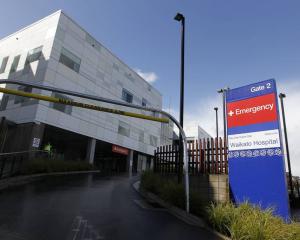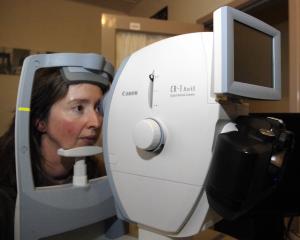Questions about how payments for private top-up drugs for public cancer patients might be calculated in any pilot scheme dominated discussion at the Otago District Health Board's hospital advisory committee yesterday.
It eventually voted unanimously to recommend the board endorse a pilot, subject to approval by the Minister of Health.
The decision was accompanied by a request for management to provide the board, when it discusses the issue at its meeting next month, with explicit information on how costs would be recovered.
The suggestion a charitable trust be used for the pilot also needed further explanation, the committee decided.
The committee considered a report on the proposal, which said the bills for top-up treatments must include any costs associated with treatment, including investigations, nursing time, consumables and a fair contribution to overheads.
Any surplus generated was to be retained within the department to improve services, rather than be used to offset any departmental or hospital deficit.
Committee chairman Richard Thomson said it was important the cost-recovery methodology could be audited.
Costs imposed needed to be as close as possible to the actual cost.
Committee member Dr John Adams said systems were needed to ensure there was no improper incentive for staff to provide extra or inappropriate treatment for a very vulnerable group of patients.
Oncologist Dr Chris Jackson, who promoted the idea of the pilot, told the meeting there would be a " robust" system of deciding what treatments would be allowed, which would include peer approval.
This would ensure clinicians did not offer treatments which were " out of step" and achieve a level of integrity which did not exist in the private system.
Patients would be advised in advance of each round of treatment what it would cost - "we're not asking patients for a blank cheque".
Asked how the success of the scheme might be measured, Dr Jackson said it would be difficult to gauge that based on the number of patients alone.
The numbers using the system could fluctuate depending on which drugs Pharmac was funding.
The service should be financially sustainable, ethically acceptable and accepted by staff and the community.
Mr Thomson said while the consultation process was "not without its faults", the the calibre of input on both sides of the issue was remarkable.
One hundred responses to the consultation paper were received, with 58% of them in favour.
Mr Thomson said although he had supported the idea from the beginning, some issues raised in the submissions had affected his thinking on the question.
He noted the committee was debating a recommendation which was going to the Otago board, although the service involved, Southern Blood and Cancer, was a joint Otago-Southland one.
He was not sure what would happen if the Otago board approved it and Southland did not agree.
That would be a matter for the boards to decide, he said.
Otago could make its decision only in relation to patients living within its area.











